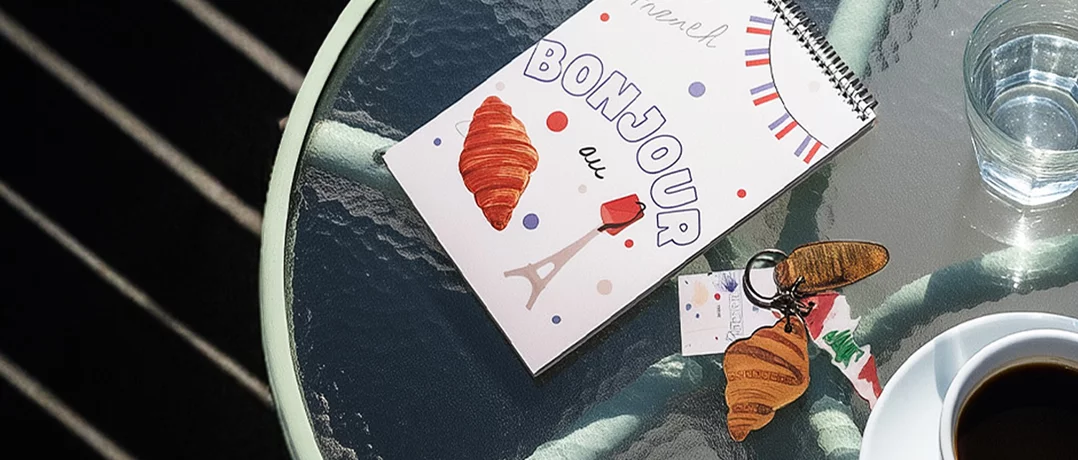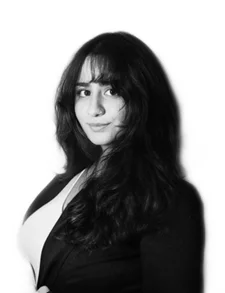At cafés across Lebanon, strangers are meeting not for coffee alone, but to swap words, accents, and worlds. From French to Spanish to German, language exchanges are stitching friendships, opportunities, and futures together, one conversation at a time.
From Bonjour to Marhaba: Lebanon’s language exchange communities
From Bonjour to Marhaba: Lebanon’s language exchange communities


The café buzzed with voices, French drifting from one table, Arabic laughter spilling from another. At the corner, a young woman leaned forward, notebook open, teaching conjugations to a stranger who quickly became a friend. This wasn’t a classroom. It was a Tuesday evening in Beirut, and “Bonjour au Croissant” had just begun.
Started by Rouba Houssami, the initiative is part café, part classroom, part family. Each month, she gathers people eager to sharpen their French or practice Arabic, no fees, no formalities, just curiosity.
Because I love the French language, I’m French-educated and did my Master’s degree in France
“Some of my friends don’t speak the language, and since I like to make an impact and bring people together, I created this initiative to help others practice French in a fun, social way,” Houssami added.
For her, it was never about textbooks. “We meet in cafés, usually with a small group, pairing, and then we exchange. Some questions are already printed out, along with a PDF of light conversation topics to get everyone talking. It’s casual and friendly, and everyone is welcome, from beginners to fluent speakers.”
The room is proof. On one side, Wissam Yassin, 27, spoke about preparing for his Master’s in France. “I joined Bonjour au Croissant because of my art residency in France… one of my friends saw the initiative on Instagram and sent it to me. I couldn’t believe it, so I signed up right away. I have been coming to the meetups since day one.”
Across from him, his friend Ali nodded along. It was only his second time, but already, his French was flowing more smoothly. Around them, others scribbled notes, laughed, or switched mid-sentence between Arabic and French. Even Hanane, notebook in hand, jumped in to guide new learners.
“It’s a nice community and I made friends with the people attending,” Wissam added. “They have helped me along the way, even professionally, with some advice regarding the work field.”
Rouba insists the meetups stay free. “Because I believe language learning should be accessible. Not everyone can afford classes, and this format encourages natural practice without pressure.” When breakthroughs happen, she says, the magic is shared. “Once, a participant who had never dared speak in French before completed a whole conversation. The group applauded; it was beautiful and encouraging.”
Seeds of exchange
While “Bonjour au Croissant” feels new, the spirit of language exchange in Lebanon isn’t. In Tripoli, Anna Zolotareva once created Tandem, a project that changed lives before she moved abroad.
“The idea first came after around 6 months I spent in Trablos (Tripoli), but I realized I actually knew quite little of local life and people,” Anna recalled. “So, I thought of a social group which would connect people in Tripoli, independent from their district, affiliation, etc.”
Her meetups weren’t limited to French and Arabic. “Most demanded were English-German-Arabic, followed by French, Italian, Russian, and occasionally some others like Japanese. This strongly depended on how many of each respective language speaker we had in each session.” To ease conversations, Anna introduced cards with prompts. “I knew it was sometimes hard to start talking, especially with completely new people. So, I used cards with questions or topics to motivate a conversation.”
The atmosphere was lighthearted but meaningful. “The mood was always cheerful, sometimes more prone to improvisation, sometimes less. I guess it was important for me to make it a safe space for cultural exchange, and so far I can say it succeeded.”
From Tripoli to Berlin
For Rabih Hajjo, a former participant at Tandem, those sessions were life-changing.
“I got to know Anna through my friend Mira… My biggest motivation was my need to learn German. I set myself a goal that during this period I had to reach the B1 level in German at least.”
Practice turned into progress. “The meet-ups helped me a lot, because they made me practice the language continuously. I was forced to speak, make mistakes, and then the mistakes would get corrected. That helped me speak more, and my level developed until I reached the stage I wanted.”
By the time Rabih boarded a plane to Germany, he was ready.
From the very first moment on the plane, I started speaking German with the passengers. Even at the Berlin airport, I solved a problem with the police in German. Even though I was still at B1, all the practice had made things much easier.
The exchange opened doors quickly. “Just three days after I arrived, I had a barista job interview, and the whole conversation was in German. The manager couldn’t believe I had only been there three days.”
What he missed most, though, were the gatherings themselves. “We used to do sessions at Warshe 13 (coffee shop in Mina, Tripoli)… The atmosphere was very organized and truly wonderful.”
His advice to others: “Start as soon as possible, and don’t overthink it. Don’t be afraid of mistakes, and don’t feel shy. Mistakes teach you, and the people with you at the exchange correct you, and next time you’ll speak better.”
A growing culture
Today, from Anna’s Tandem in Tripoli to Rouba’s Bonjour au Croissant in Beirut, and even new Spanish initiatives like Hispanohablanted, language exchanges are weaving a quiet cultural revolution across Lebanon.
They’re about more than grammar or vocabulary. They’re about access, connection, and courage, the confidence to step into new circles, land opportunities, and even jobs. In a country like Lebanon, where speaking several languages isn’t just an asset but almost a necessity, these exchanges give people the tools to belong and to thrive.
As Rouba put it: “So many people have become friends, met for coffee outside the group, shared job opportunities, and even helped each other in their personal or academic journeys.” And for every nervous beginner who dares to speak up, there’s a round of applause waiting.


